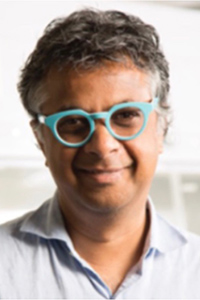Date/Time
Date(s) - 02/28/2023
9:15 am - 10:15 am
Location
New Engineering Building – Room 201
Categories
Sanat K. Kumar, Ph.D.
Bykhovsky Professor of Chemical Engineering
Columbia University
Title: Plastics Recycling/Upcycling
Abstract: Polymer waste in the environment is a central concern to humanity. Currently, only ~10% of all plastics produced from hydrocarbon feedstocks are recycled, while 30% are dumped into the environment, 40% land filled and 14% are burned (into CO2 another environmental concern). Why it is so hard to recycle polymers is the first topic we shall consider. Then, we shall show that current protocols, which generally involve deconstructing a polymer into its building block monomers and then subsequent reconstruction, is not a productive strategy for many commercially relevant materials. Other strategies need to be developed and we discuss a particularly facile one, where mixed plastics can be reused through the process of mechanical recycling (e.g., simple reprocessing by extruding the polymer waste). The underpinning physics and chemistry of this process will be discussed. Time permitting, we shall also discuss how the 30% of polymers put into the environment degrade to form micro and nanoplastics. We shall also examine means to mitigate the formation of these environmental pollutants that could adversely affect lifeforms, especially in the marine milieu.
Bio: Sanat K. Kumar creates, analyzes, and models new classes of polymer-based materials with improved properties. A particular focus of his research is on hybrid materials, namely polymers with inorganic fillers, with relevance to biomimicry and energy storage and conversion.
Dr. Kumar’s group has been the pioneer over the last decade in the practically relevant topic of Polymer Nanocomposites, where inorganic nanoparticles are added to polymers to obtain materials with synergistic properties. A central problem in this area is that inorganic, hydrophilic nanoparticles are frequently immiscible with organic polymers, and the promised property improvements from these materials have remained hard to realize. Thus, many industrial applications use predefined “recipes” to make products, often with spectacular failures, such as tire tread separation, which are the consequence of our poor understanding of these systems and therefore their properties.
Dr. Kumar’s work in this area spans all topics of polymer nanocomposites including self-assembly, microstructure, glassy segmental dynamics and vitrification, elasticity and reinforcement, linear and nonlinear mechanical-dynamical phenomena (such as strain softening and yielding), chain relaxation, and nanoparticle diffusion and dynamics. His group combines theory, simulation, and experiment to advance the science of energy conversion and storage (namely, membranes for gas separation and for the selective transport of ions as relevant to batteries) and more recently to mimic biology (e.g., the development of hierarchical morphologies as found in Nacre with the goal of achieving unprecedented improvements in properties and the use of DNA to guide the assembly of nanoparticle into desired structures).
Dr. Kumar received a BTech in chemical engineering from the Indian Institute of Technology, Madras in 1981 and a ScD in chemical engineering from the Massachusetts Institute of Technology in 1987. He joined the faculty of Columbia Engineering in 2006.

